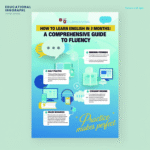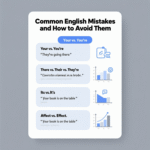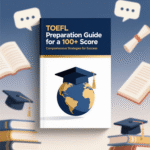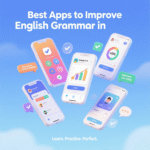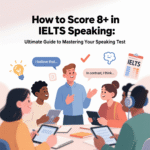In 2025, the educational landscape continues to evolve at an unprecedented pace, driven by technological advancements that transform how students learn, engage, and excel. Best educational apps for students in 2025 are no longer supplementary tools but integral components of modern education, offering personalized, interactive, and accessible learning experiences. We explore a comprehensive selection of top-tier apps designed to enhance academic performance, foster skill development, and cater to diverse learning needs. From AI-driven platforms to gamified language learning, these apps represent the pinnacle of educational innovation, empowering students to thrive in a dynamic digital world.
- Why Educational Apps Are Essential in 2025
- Criteria for Selecting the Best Educational Apps
- Top Educational Apps for Academic Success in 2025
- Khan Academy: Comprehensive Free Learning Hub
- Duolingo: Gamified Language Learning
- Coursera: University-Backed Professional Courses
- Quizlet: Flashcards and Study Tools
- Photomath: Solving Math with Ease
- Specialized Apps for STEM Learning
- Language and Literacy Apps for Young Learners
- Productivity and Organization Apps
- Coding and Tech Skills Apps
- Apps for Competitive Exam Preparation
- Emerging Trends in Educational Apps for 2025
- Recommendations and Suggestions
- Frequently Asked Questions (FAQs)
Why Educational Apps Are Essential in 2025
The proliferation of smartphones and tablets has revolutionized education, making learning accessible anytime, anywhere. Best educational apps for students in 2025 leverage cutting-edge technologies like artificial intelligence (AI), augmented reality (AR), and adaptive learning algorithms to deliver tailored educational experiences. These apps address the unique challenges students face, such as time management, complex subject matter, and the need for engaging content. By integrating multimedia, interactive exercises, and real-time feedback, these tools enhance comprehension and retention, making them indispensable for students of all ages.
Moreover, the global e-learning market is projected to reach $319 billion by 2025, with mobile learning apps accounting for over 30% of the market share. This growth underscores the increasing reliance on digital tools to supplement traditional education. Whether students are preparing for standardized tests, mastering a new language, or exploring STEM subjects, best educational apps for students in 2025 provide unparalleled opportunities for growth and achievement.
Criteria for Selecting the Best Educational Apps
To curate this list of the best educational apps for students in 2025, we evaluated apps based on several critical factors:
- Content Quality: Apps must offer accurate, curriculum-aligned, and engaging content designed by experts.
- User Experience: Intuitive interfaces, seamless navigation, and accessibility across devices (iOS, Android, and web) are essential.
- Interactivity: Features like quizzes, gamification, and real-time feedback enhance engagement and learning outcomes.
- Affordability: We prioritized apps with free or cost-effective options to ensure accessibility for all students.
- Personalization: Adaptive learning paths tailored to individual student needs improve effectiveness.
- Innovation: Apps incorporating AI, AR, or other advanced technologies stand out in 2025’s competitive landscape.
With these criteria in mind, we present a detailed exploration of the top educational apps that are shaping the future of learning.
Top Educational Apps for Academic Success in 2025
Khan Academy: Comprehensive Free Learning Hub
Khan Academy remains a cornerstone of digital education, offering a vast library of over 10,000 free lessons across subjects like math, science, history, and economics. In 2025, Khan Academy has enhanced its platform with AI-driven progress tracking, enabling personalized learning paths that adapt to each student’s strengths and weaknesses. The app’s interactive exercises, instructional videos, and practice quizzes cater to students from kindergarten to college, making it one of the best educational apps for students in 2025.
- Key Features:
- Comprehensive course library covering K-12 and higher education.
- Personalized dashboards for tracking progress and mastery.
- SAT, ACT, and AP prep materials for standardized test preparation.
- Offline learning capabilities for accessibility in low-connectivity areas.
- Teacher and parent dashboards for monitoring student performance.
The app’s commitment to free education ensures equitable access, while its intuitive interface and bite-sized lessons make it ideal for students juggling busy schedules. Khan Academy’s ability to break down complex topics into digestible segments has made it a go-to resource for millions worldwide.
Duolingo: Gamified Language Learning
Duolingo continues to dominate the language-learning space with its gamified approach, offering courses in over 40 languages, including Spanish, French, German, and lesser-known languages like Navajo and Hawaiian. In 2025, Duolingo has introduced enhanced AI-driven speech recognition and conversational practice modules, making it one of the best educational apps for students in 2025 for language acquisition.
- Key Features:
- Bite-sized lessons that fit into busy schedules.
- Gamified challenges, leaderboards, and rewards to boost motivation.
- Adaptive learning that adjusts difficulty based on performance.
- Free access to core content with optional premium subscriptions.
- Integration with AR for immersive pronunciation exercises.
Duolingo’s engaging interface, complete with playful mascots and streak-based incentives, keeps students motivated. Its focus on real-world conversational skills makes it ideal for students studying abroad or preparing for language proficiency exams.
Coursera: University-Backed Professional Courses
Coursera partners with top universities like Harvard, Stanford, and Yale to offer accredited courses, certificates, and degrees. In 2025, Coursera has expanded its offerings to include micro-credentials and career-focused programs, making it a top choice for college students and professionals seeking to upskill. Its robust library of over 7,000 courses spans computer science, business, humanities, and more, positioning it among the best educational apps for students in 2025.
- Key Features:
- Courses from world-renowned institutions and industry leaders.
- Flexible, self-paced learning with lifetime access to course materials.
- Interactive assignments, peer-reviewed projects, and quizzes.
- Mobile-friendly design for learning on the go.
- Affordable certificate programs to enhance resumes.
Coursera’s emphasis on vocational training and certifications makes it invaluable for students aiming to bridge the gap between academia and industry demands. Its integration with LinkedIn for credential sharing further enhances its appeal.
Quizlet: Flashcards and Study Tools
Quizlet revolutionizes study habits with its digital flashcards, practice tests, and interactive games. In 2025, Quizlet has introduced AI-powered study recommendations and voice-activated flashcards, catering to diverse learning styles. Its collaborative features allow students to share study sets with peers, making it a versatile tool for group study sessions.
- Key Features:
- Customizable flashcards for any subject or topic.
- AI-driven study plans tailored to exam schedules.
- Interactive games like Match and Gravity for engaging revision.
- Integration with Google Classroom and Microsoft Teams.
- Free basic plan with affordable premium upgrades.
Quizlet’s ability to transform rote memorization into an engaging experience makes it a favorite among high school and college students preparing for exams.
Photomath: Solving Math with Ease
Photomath remains a lifesaver for students grappling with mathematical concepts. By scanning handwritten or printed equations, the app provides step-by-step solutions, interactive graphs, and detailed explanations. In 2025, Photomath has enhanced its AI to support advanced topics like calculus and linear algebra, solidifying its status as one of the best educational apps for students in 2025.
- Key Features:
- Instant equation scanning with real-time solutions.
- Step-by-step breakdowns for deeper understanding.
- Interactive graphs for visualizing complex problems.
- Support for algebra, geometry, trigonometry, and calculus.
- Offline functionality for uninterrupted learning.
Photomath’s intuitive interface and focus on conceptual clarity make it an essential tool for students seeking to master math at any level.
Specialized Apps for STEM Learning
Science 360: Immersive Science Exploration
Developed by the National Science Foundation, Science 360 offers a wealth of high-quality videos, images, and interactive content focused on science and engineering. In 2025, the app has introduced virtual reality (VR) labs, allowing students to conduct experiments in a simulated environment. Its engaging content makes complex scientific concepts accessible and exciting.
- Key Features:
- Curated content from global scientists and researchers.
- VR labs for hands-on experimentation.
- Regular updates with the latest scientific discoveries.
- Free access to all content.
- Compatibility with iOS and Android devices.
Science 360’s immersive approach fosters curiosity and critical thinking, making it ideal for STEM enthusiasts.
Star Walk 2: Astronomy Made Fun
Star Walk 2 is a must-have for astronomy students, offering an interactive stargazing experience with AR capabilities. By pointing a device at the sky, users can identify stars, planets, and constellations in real time. The app’s 2025 update includes detailed mission logs from NASA and SpaceX, enhancing its educational value.
- Key Features:
- Real-time sky mapping with AR integration.
- Detailed information on celestial bodies and space missions.
- Offline mode for stargazing in remote areas.
- Interactive quizzes to test astronomy knowledge.
- User-friendly interface for all ages.
Star Walk 2 transforms astronomy into an engaging adventure, perfect for students and hobbyists alike.
Language and Literacy Apps for Young Learners
Reading Eggs: Early Literacy Development
Reading Eggs is an award-winning app designed to help children aged 2–8 learn to read. With over 2,000 digital books, interactive games, and guided lessons, it fosters a love for reading through engaging content. In 2025, Reading Eggs has introduced AI-driven reading assessments to track progress and recommend personalized activities.
- Key Features:
- Curriculum-aligned lessons for phonics and comprehension.
- Interactive games and rewards to maintain engagement.
- Progress tracking for parents and educators.
- Offline access to select content.
- Free trial with affordable subscription plans.
Reading Eggs’ playful approach makes it a top choice for parents seeking to build foundational literacy skills in young children.
Hooked on Phonics: Phonics for Beginners
Hooked on Phonics targets children aged 3–7, offering 36 progressive lessons to teach early reading skills. With over 100 eBooks, games, and videos, the app makes phonics fun and accessible. Its 2025 update includes voice-activated reading exercises to improve pronunciation.
- Key Features:
- Step-by-step phonics lessons with interactive activities.
- Extensive eBook library for applied learning.
- Voice recognition for pronunciation practice.
- Free 7-day trial with a $7/month subscription.
- Parental dashboards for progress monitoring.
Hooked on Phonics is ideal for young learners building confidence in reading.
Productivity and Organization Apps
Evernote: Ultimate Note-Taking Solution
Evernote remains a top choice for students seeking to organize notes, schedules, and tasks. Its powerful search functionality, PDF annotation, and cross-device syncing make it a versatile tool for academic success. In 2025, Evernote has introduced AI-powered note summarization to streamline study sessions.
- Key Features:
- Sync notes across devices for seamless access.
- Annotate PDFs and images for collaborative projects.
- AI-driven summarization for quick revision.
- Integration with Google Calendar and Microsoft Outlook.
- Free basic plan with premium options.
Evernote’s robust features make it essential for students managing complex coursework.
myHomework Student Planner: Stay Organized
myHomework Student Planner helps students manage coursework, assignments, and deadlines with an intuitive calendar-based interface. Its 2025 update includes AI-driven reminders and prioritization tools to enhance productivity.
- Key Features:
- Calendar-based task management.
- AI-driven reminders for upcoming deadlines.
- Cross-platform syncing for accessibility.
- Free basic plan with premium upgrades.
- Integration with Google Classroom.
This app is perfect for students seeking to balance academics and extracurriculars.
Coding and Tech Skills Apps
Scratch: Coding for Beginners
Scratch, developed by MIT, introduces students to coding through a block-based interface. In 2025, Scratch has expanded its library of tutorials and projects, making it accessible to learners of all ages. Its gamified approach fosters creativity and problem-solving.
- Key Features:
- Drag-and-drop coding for beginners.
- Extensive library of tutorials and sample projects.
- Community platform for sharing creations.
- Free to use across all devices.
- Offline mode for uninterrupted learning.
Scratch is ideal for students interested in exploring programming in a fun, low-pressure environment.
SoloLearn: Advanced Coding Skills
SoloLearn offers courses in Python, Java, C++, and more, catering to students seeking to develop professional coding skills. Its 2025 update includes real-time coding challenges and peer collaboration features, enhancing its appeal for tech-savvy learners.
- Key Features:
- Comprehensive courses in multiple programming languages.
- Real-time coding challenges for skill-building.
- Community forums for peer support.
- Free access with optional premium features.
- Mobile-friendly design for learning on the go.
SoloLearn is perfect for students pursuing careers in technology.
Apps for Competitive Exam Preparation
Unacademy: Exam Prep Powerhouse
Unacademy is a leading platform for competitive exam preparation, offering live classes, mock tests, and expert-led content for exams like SAT, ACT, GRE, and more. Its 2025 update includes AI-driven performance analytics to help students identify strengths and weaknesses.
- Key Features:
- Live classes with real-time doubt-solving.
- Mock tests aligned with exam formats.
- AI-driven performance tracking.
- Affordable subscription plans.
- Offline access to recorded sessions.
Unacademy’s structured approach makes it a top choice for exam-bound students.
Brainly: Peer-to-Peer Learning
Brainly connects students with a global community for homework help across subjects like math, science, and English. Its AI-powered problem-solving tools and peer collaboration features make it a unique addition to the best educational apps for students in 2025.
- Key Features:
- Peer-to-peer homework assistance.
- AI-driven solutions for math and science problems.
- Community-verified answers for accuracy.
- Free access with optional premium features.
- Multilingual support for global learners.
Brainly’s collaborative model fosters a sense of community while addressing academic challenges.
Emerging Trends in Educational Apps for 2025
The educational app landscape in 2025 is shaped by several transformative trends:
- AI-Powered Personalization: Apps like Khan Academy and Udemy use AI to tailor content to individual learning styles, improving engagement and outcomes.
- Gamification: Duolingo and Quizlet leverage gamified elements to make learning fun and addictive.
- Augmented and Virtual Reality: Apps like Star Walk 2 and Science 360 incorporate AR and VR for immersive learning experiences.
- Offline Accessibility: Many apps now offer offline modes to ensure learning in low-connectivity areas.
- Collaborative Learning: Platforms like Brainly and ClassDojo emphasize community-driven education, fostering collaboration among students, teachers, and parents.
These trends highlight the dynamic nature of educational technology, ensuring apps remain relevant and effective.
Recommendations and Suggestions
To maximize the benefits of the best educational apps for students in 2025, we recommend the following:
- Start with Free Trials: Most apps offer free trials or basic plans. Explore multiple apps to find the best fit for your learning style.
- Combine Apps for Holistic Learning: Use subject-specific apps like Photomath for math and Duolingo for languages, alongside productivity tools like Evernote.
- Set Learning Goals: Define clear objectives, such as mastering a language or preparing for an exam, to stay focused.
- Leverage Community Features: Engage with peer communities on apps like Brainly and SoloLearn for collaborative learning.
- Monitor Progress: Use apps with tracking features, such as Khan Academy and Reading Eggs, to measure improvement and stay motivated.
By integrating these apps into daily routines, students can enhance their academic performance and develop lifelong learning habits.
Frequently Asked Questions (FAQs)
- What are the best educational apps for students in 2025?
The best educational apps for students in 2025 include Khan Academy, Duolingo, Coursera, Quizlet, Photomath, Science 360, Star Walk 2, Reading Eggs, Hooked on Phonics, Evernote, myHomework Student Planner, Scratch, SoloLearn, Unacademy, and Brainly. - Are educational apps free to use?
Many apps, like Khan Academy and Science 360, offer free access to core content. Others, like Duolingo and Quizlet, provide free versions with optional premium subscriptions for additional features. - How do educational apps enhance learning?
Educational apps use interactive exercises, gamification, AI personalization, and multimedia content to make learning engaging, accessible, and tailored to individual needs. - Can educational apps help with exam preparation?
Yes, apps like Unacademy, Khan Academy, and Quizlet offer specialized content for standardized tests like SAT, ACT, GRE, and competitive exams. - Are there educational apps for young children?
Apps like Reading Eggs, Hooked on Phonics, and Scratch Jr. are designed for young learners, focusing on literacy, phonics, and basic coding skills. - Do educational apps work offline?
Many apps, including Khan Academy, Photomath, and Star Walk 2, offer offline functionality, allowing learning in low-connectivity areas. - How can I choose the right educational app?
Consider factors like content quality, user experience, interactivity, affordability, and personalization when selecting an app. - Are educational apps safe for students?
Reputable apps like those listed prioritize user privacy and data security. Always review privacy policies before use. - Can educational apps replace traditional learning?
While apps enhance learning, they are best used as supplements to traditional education, offering flexibility and additional resources. - What subjects do educational apps cover?
Educational apps cover a wide range of subjects, including math, science, languages, coding, history, and humanities. - How do gamified apps like Duolingo work?
Gamified apps use rewards, leaderboards, and interactive challenges to make learning engaging and motivate consistent practice. - Are there apps for STEM-focused learning?
Yes, apps like Science 360, Star Walk 2, and SoloLearn focus on STEM subjects, offering interactive and hands-on experiences. - Can parents track progress with educational apps?
Apps like Reading Eggs, Khan Academy, and ClassDojo provide parental dashboards to monitor student progress. - Are educational apps accessible on multiple devices?
Most apps are compatible with iOS, Android, and web platforms, ensuring seamless access across devices. - How do I stay motivated using educational apps?
Set clear goals, use gamified apps for engagement, and track progress to maintain motivation.






